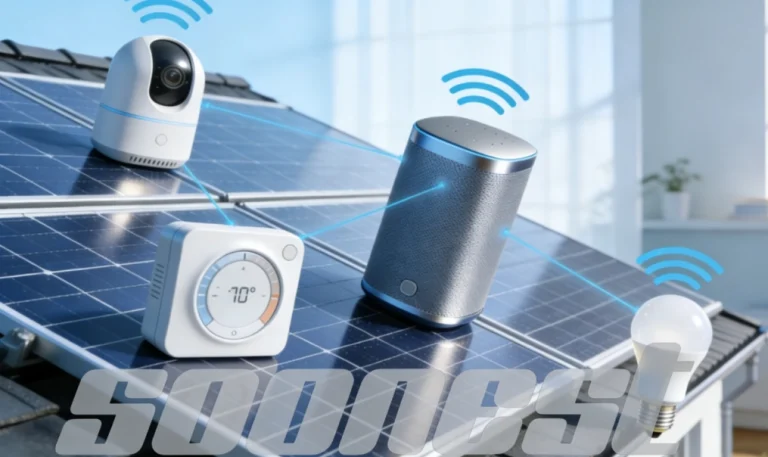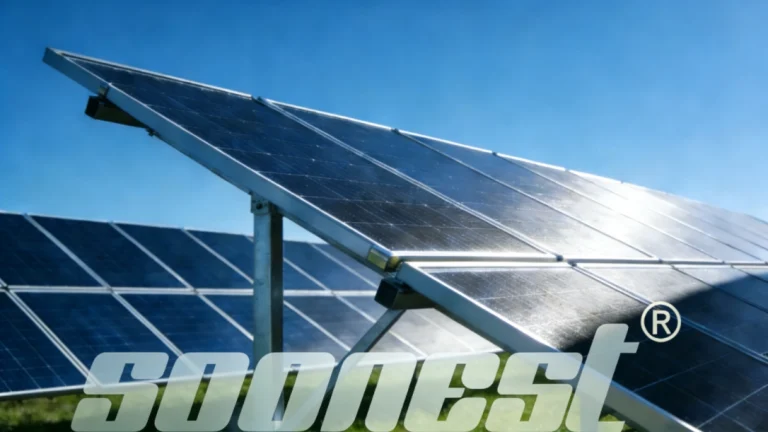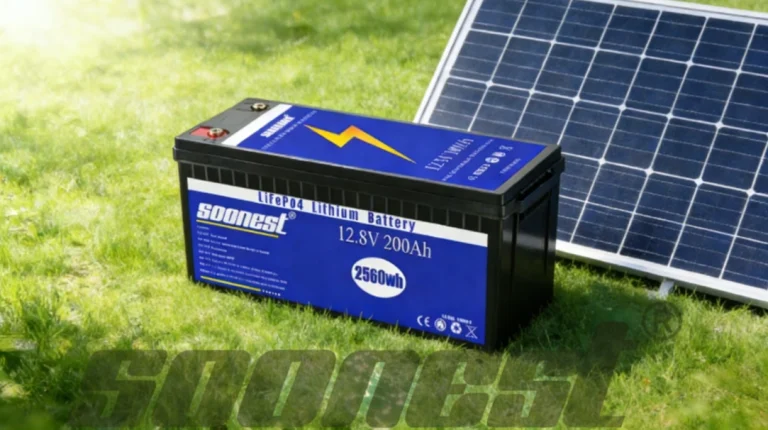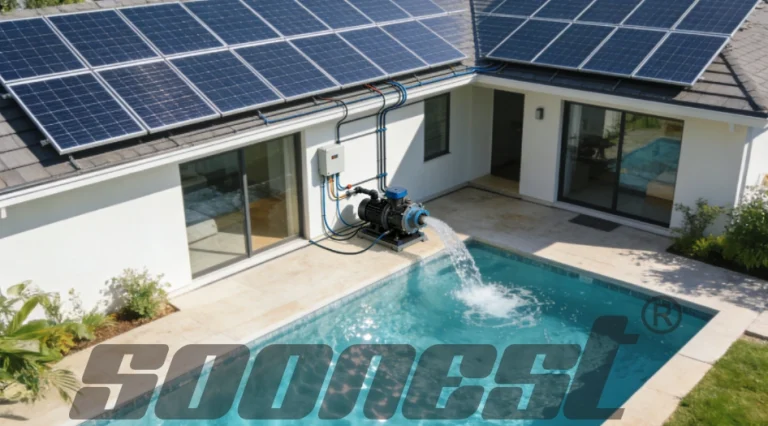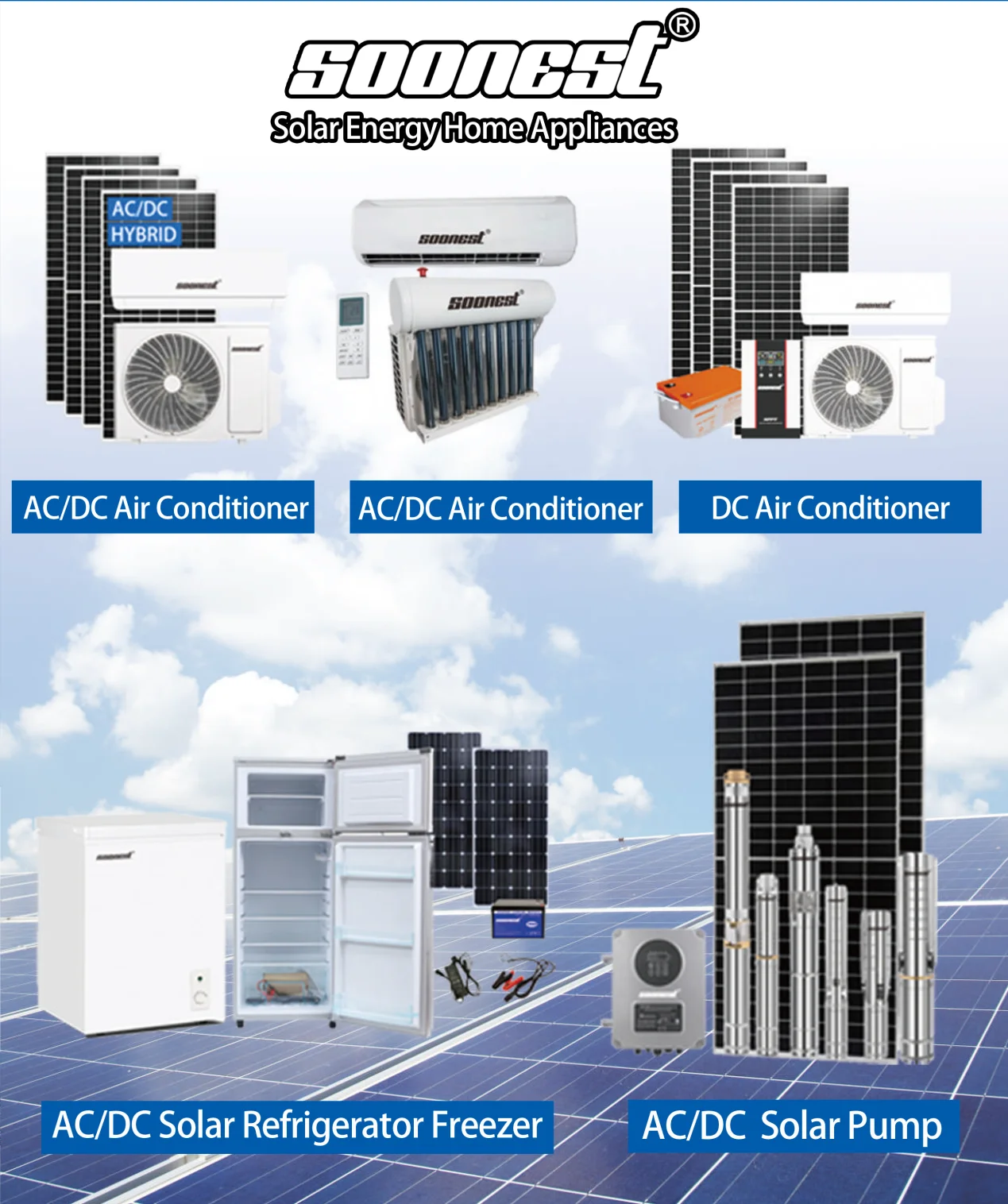
Alimentation électroménagers solaires est réalisable avec le bon équipement. Vous avez besoin de panneaux solaires, d'onduleurs et de batteries. De minuscules appareils comme les lampes LED et les ordinateurs portables fonctionnent en douceur. Mais les choses plus grandes, comme les réfrigérateurs ou les climatiseurs, nécessitent un peu de planification. Le bon fonctionnement du soleil dépend de l'endroit où vous êtes, de la météo et de la façon dont vous manipulez l'énergie. Des outils propres, comme la charge MPPT et les traceurs d'énergie, rendent les choses fonctionnent parfaitement. Vérifier votre consommation d’énergie, choisir des gadgets intelligents et les faire fonctionner lorsque le soleil brille peut améliorer beaucoup l’énergie solaire. Une maison entièrement solaire est possible, mais un réseau ou une batterie de sauvegarde maintient les choses solides lorsque vous utilisez beaucoup d’électricité ou il est nuageux.
Pouvez-vous alimenter vos appareils électroménagers entièrement avec de l'énergie solaire?
Utilisation énergie solaire pour électroménagers Ce n’est plus une idée sauvage. Vous pouvez le faire maintenant. Avec la bonne configuration, vous pouvez utiliser les lumières, les réfrigérateurs et plus encore en utilisant la lumière du soleil. Mais combien pouvez-vous pouvoir ? Quels gadgets conviennent le mieux ?
Pour des solutions solaires solides, consultez Plus tôtsystèmes solaires à domicile frais. Ils disposent d'outils intelligents et de technologie d'inverseur qui correspondent à ce dont les gens ont besoin aujourd'hui. Leurs configurations sont conçues pour économiser de l’énergie et être faciles à utiliser, que vous soyez loin du réseau ou que vous souhaitiez simplement une facture d’électricité plus petite.
Comment fonctionne l'énergie solaire dans un cadre domestique?
Un système solaire domestique capte la lumière solaire avec des panneaux photovoltaïques (PV). Ces panneaux transforment la lumière solaire en électricité en courant continu (CC). La plupart des appareils domestiques ont besoin de courant alternatif (AC). Donc, un onduleur retourne DC en courant alternatif. Cet onduleur produit une électricité AC propre et stable pour les systèmes qui fonctionnent seuls.

Si votre maison utilise le réseau, les systèmes solaires fonctionnent souvent de manière mixte. Ils choisissent d'abord l'énergie solaire. Si cela ne suffit pas, ils passent au réseau, ce qui permet à vos gadgets de fonctionner pendant les jours nuageux ou lorsque vous consommez beaucoup d’énergie.
Quels sont les principaux composants d'un système solaire domestique?
Une installation solaire simple à la maison a ces parties:
- Panneaux PV
- Un inverseur
- Un système de stockage de batterie (pas un must, mais super pratique)
- Contrôleurs de charge
- Logiciel de suivi
Des fonctionnalités telles que la charge solaire MPPT (jusqu'à 80A), une large gamme d'entrée photovoltaïque (30-400VDC) et des commandes intelligentes de batterie sont dans de bons systèmes. Ils maintiennent tout bien et fort.
Pourquoi le stockage de la batterie est-il essentiel pour l'efficacité?
Les batteries conservent de l'énergie supplémentaire produite lorsque le soleil est hors. Vous pouvez l'utiliser la nuit ou quand il est nuageux. Un chargeur de batterie intelligent maintient l'énergie stockée en sécurité et fonctionne bien.
Sans batteries, l’énergie solaire supplémentaire va au réseau. Si vous êtes hors réseau, elle est perdue. Les batteries rendent votre système autonome. Ils réduisent votre besoin d'énergie extérieure.
Quels appareils ménagers fonctionnent le mieux avec l’énergie solaire ?
Si un gadget fonctionne avec de l'énergie solaire dépend de la quantité d'énergie qu'il consomme. Certains s'adaptent à des installations solaires sans brouillage. D'autres ont besoin de plus de réflexion.
Quels appareils à faible puissance sont les candidats idéaux pour le fonctionnement solaire?
Gadgets comme les lumières LED, les chargeurs de téléphone, les routeurs Wi-Fi, les ventilateurs, les téléviseurs et les ordinateurs portables n'utilisent qu'un peu d'énergie. Ils sont super faciles à utiliser sur le solaire. C’est un excellent choix si vous commencez petit.
Les lumières LED sont incroyables. Ils ne consomment presque aucune énergie et durent éternellement. Cela les rend parfaits pour les systèmes solaires avec moins de jus.
Les appareils à moyenne puissance comme les réfrigérateurs peuvent-ils fonctionner de manière fiable sur le solaire?
Oui, les réfrigérateurs, les machines à laver et les lave-vaisselle peuvent fonctionner sur le solaire. Mais vous avez besoin d’un système qui soit juste. Réfrigérateurs-congélateurs à énergie solaire avec des configurations AC/DC 12V/24V à 220V sont pratiques. Ils fonctionnent avec différentes sources d'énergie et économisent de l'électricité.
Ces appareils ont besoin d'une puissance constante. Donc, une sauvegarde de batterie est vraiment importante pour les maintenir en fonctionnement sans problème.
Les appareils à haute puissance sont-ils trop exigeants pour les systèmes solaires?
Les grands appareils tels que les poêles électriques, les climatiseurs, les chauffages d'eau et les sécheurs consomment des tonnes d'énergie. Votre système doit être construit pour des trucs lourds.
Mais des produits comme le climatiseur solaire hybride AC / DC aident. Ces unités utilisent à la fois l'énergie solaire DC et l'énergie courante du réseau. Ils dépendent de l’énergie solaire et n’ont pas besoin de batteries. Cela réduit la consommation d'électricité de plus de 90%.
Quels facteurs déterminent la compatibilité des appareils avec l'énergie solaire?
Pour vous assurer que vos gadgets fonctionnent avec le solaire, pensez à ces choses:
Comment les schémas énergétiques de votre ménage influent-ils sur la compatibilité?
Vérifiez quand et combien chaque gadget fonctionne chaque jour. Si les grands appareils fonctionnent pendant la journée, ils s’alignent avec le moment où les panneaux solaires produisent le plus d’énergie. Cela réduit l'utilisation de l'énergie stockée ou du réseau.
Votre emplacement géographique influe-t-il sur les performances solaires ?
Oui, les endroits avec beaucoup de soleil vous donnent plus d'énergie. Les panneaux solaires transforment la lumière du soleil en électricité bien. Mais les nuages ou les changements saisonniers peuvent gâcher la quantité d'énergie que vous obtenez.
Quelle est l'importance du dimensionnement du système et de la gestion de la charge?
Un système de bonne taille répond à vos besoins énergétiques quotidiens et de pointe. Il empêche les pièces de se surcharger. Utiliser des gadgets à des moments différents aide votre système à fonctionner mieux. Vous n’aurez pas besoin d’une énorme installation.
Quelles sont les limites d’utiliser uniquement l’énergie solaire ?
Tout fonctionner sur le soleil semble cool, mais il y a quelques obstacles:
La météo peut-elle perturber votre approvisionnement en énergie ?
Oui, les jours nuageux ou les tempêtes coupent l'alimentation du panneau. C’est pourquoi les configurations mixtes ou les sauvegardes de batterie sont une grande affaire. Ils maintiennent votre puissance stable toute l'année.
La capacité de la batterie sera-t-elle suffisante pendant le pic de demande?
Pas toujours. Batteries On ne peut que stocker tant. Si beaucoup de grands appareils fonctionnent à la fois lorsque la lumière du soleil est faible, vous pourriez épuiser rapidement l'énergie stockée.
Est-il possible d'utiliser plusieurs appareils lourds à la fois?
Oui, mais seulement si votre onduleur et vos batteries sont prêts pour cela. Sinon, utiliser beaucoup de gros gadgets à la fois pourrait causer des problèmes ou endommager votre système.
Comment améliorer les performances en utilisant des solutions intelligentes ?
Les systèmes d'aujourd'hui ont des fonctionnalités élégantes qui rendent la gestion de l'énergie une brise.
Quels produits résidentiels offrent des capacités de surveillance intelligente?
Les onduleurs de la série MY vous permettent de définir des plages de tension avec un écran LCD. Vous pouvez choisir la charge solaire ou AC en fonction de la météo. Cela maintient les choses bien même lorsque les conditions changent.
En outre, le redémarrage automatique lorsque l'AC revient commute les sources d'alimentation en douceur. Ceci est très utile pendant les pannes ou lorsque le réseau fonctionne.
Comment optimiser l'utilisation des appareils lors du passage à l'énergie solaire?
Pour tirer le meilleur parti du solaire, il ne s’agit pas seulement de mettre en place des panneaux. Il s’agit de les utiliser sagement.
Pourquoi effectuer un audit énergétique avant l’installation?
Un contrôle d'énergie montre quels gadgets utilisent le plus d'énergie. Cela vous aide à déterminer si certains ont besoin de remplacer avant de partir au solaire. Cela s'assure que votre système correspond à votre consommation réelle d'énergie, pas seulement des devinations.
Devriez-vous mettre à niveau vos appareils avant de passer au solaire?
Oui, les anciens gadgets gaspillent souvent l'énergie. Le passage à de nouveaux modèles classés ENERGY STAR réduit vos besoins en énergie. Cela aide votre système et vos batteries à durer plus longtemps.
Les stratégies de temps d'utilisation peuvent-elles maximiser l'efficacité de la production?
Bien sûr ! Exploiter de grands appareils comme des machines à laver autour de midi utilise la lumière solaire de pointe. Cela allége la charge sur les batteries et réduit le besoin d'alimentation du réseau plus tard.
Quelles mesures devriez-vous prendre lors de la transition de votre maison en utilisant les solutions les plus rapides?
Un plan intelligent permet d'économiser du temps et de l'argent lors du passage à énergie solaire pour électroménagers:
Devriez-vous commencer par évaluer les besoins avec un installateur certifié?
Oui, un pro peut regarder vos charges de gadget. Ils s'assurent que votre système est de taille pour le moment et les besoins futurs, comme l'ajout de chargeurs de véhicules électriques ou de pièces supplémentaires.
Comment choisir le bon paquet en fonction de la charge de l'appareil?
Chaque maison est unique. Certains ont besoin de paramètres de base pour les lumières. D'autres ont besoin de systèmes complets de chauffage et de refroidissement. Plus tôt continuent d’améliorer leurs produits. Ils offrent des solutions pour tout, de la cuisine au maintien de votre maison confortable, répondant à toutes sortes de besoins.
Pourquoi l'entretien continu est-il important après l'installation?
Vérifier régulièrement votre système le maintient en fonctionnement génial. Détecter les problèmes tôt arrête les grandes factures de réparation plus tard. Chaque Plus tôt le produit est testé pendant au moins deux heures avant l'expédition. Cela montre qu’il est solide. Mais les soins réguliers le maintiennent bien pendant des années.
FAQ (questions fréquentes)
Q1: Puis-je faire fonctionner tous mes appareils ménagers en utilisant uniquement des panneaux solaires?
R: Oui, mais votre système doit avoir la bonne taille. Vous aurez également besoin de suffisamment de batterie de sauvegarde ou de support réseau pour de grands gadgets comme des poêles ou des climatiseurs.
Q2: Ai-je besoin de batteries si je vis dans une région ensoleillée?
R: Les batteries ne sont pas obligatoires dans les configurations mixtes. Mais ils vous permettent d'économiser de l'énergie supplémentaire pendant la journée pour les nuits ou les jours nuageux. Cela vous rend moins lié à la grille.
Q3: Le changement de mon ancien réfrigérateur m'aidera-t-il à économiser plus sur mon nouveau système solaire?
R : Oui ! Les nouveaux gadgets efficaces utilisent moins d'énergie. Cela permet aux systèmes plus petits de fonctionner mieux et permet aux batteries de durer plus longtemps.

